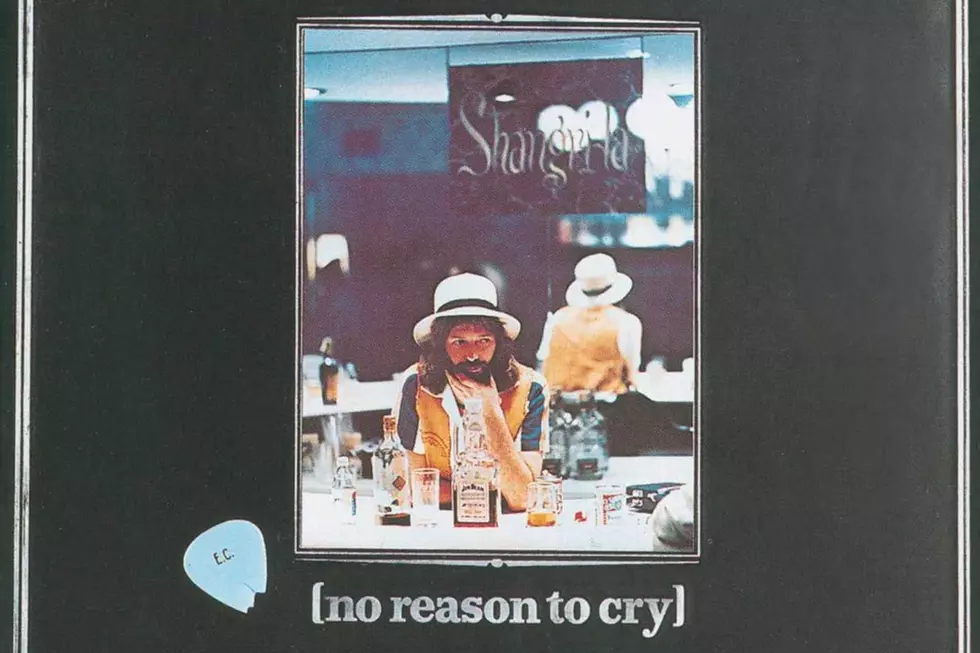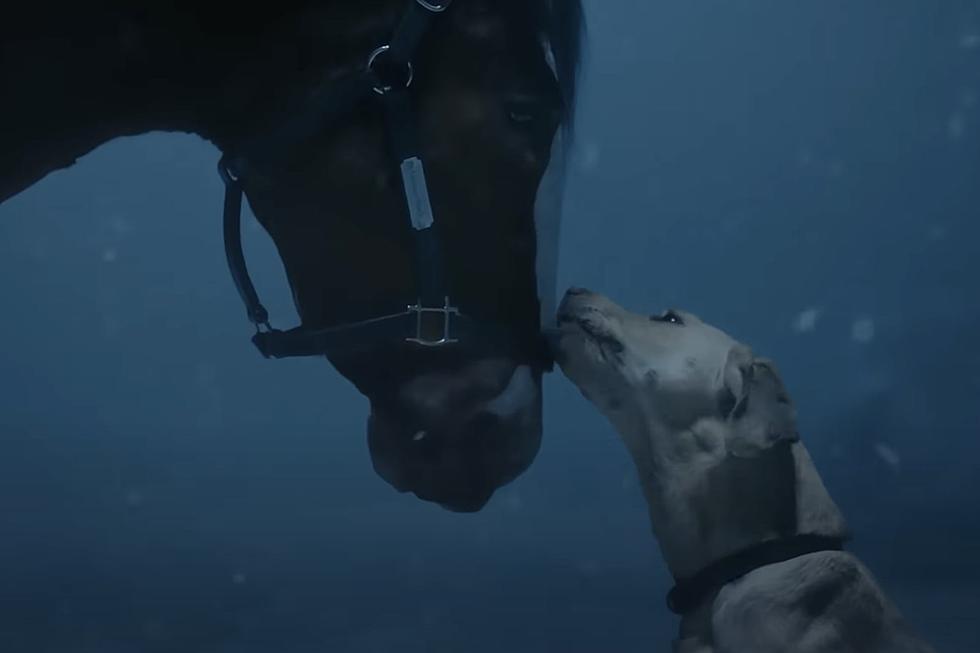
When Eric Clapton Enlisted the Band for ‘No Reason to Cry’
Eric Clapton played in several history-making groups, but there was one he couldn't quite break into: the Band. The guitarist even went so far as to visit the Band in Woodstock when he was playing with Cream in the late '60s.
"I went and told Jack [Bruce] and Ginger [Baker] that I couldn't go on anymore, there was something else happening," Clapton admitted in 1994 as he inducted the Band into the Rock & Roll Hall of Fame. "I really sort of went there to ask if I could join the Band, only I didn't have the guts to say it, I didn't have the nerve. I just sort of sat there and watched these guys work."
But the Band's incumbent guitarist, Robbie Robertson, could sense what Clapton was up to. "I remember Robbie saying, 'We don't jam ... we just write and work,'" Clapton recalled. "From that day, I spent the rest of my career, until The Last Waltz anyway, trying to imitate what they had."
A few years later, Clapton wouldn't have to imitate; he got all five members of the group to help out on his fourth solo album, 1976's No Reason to Cry. His previous album, There's One in Every Crowd, wasn't a hit with fans and critics like his 1970 self-titled debut and 1974's 461 Ocean Boulevard, so he brought in some famous friends to help out this time, including Ron Wood, Billy Preston and Yvonne Elliman.
Clapton lets his collaborators run free: A Rick Danko and Richard Manuel song, "Beautiful Thing," opens the LP; another Danko cowrite, this one with Clapton, shows up in "All Our Past Times." "He was such a kind, lovely guy, and I admired him musically," Robertson said of Clapton years later. "I thought he was so gifted."
Listen to Eric Clapton's 'All Our Past Times'
Of course, where there's the Band, there's often Bob Dylan. As the liner notes to Dylan's 1991 box set The Bootleg Series Volumes 1–3 (Rare & Unreleased) 1961–1991 detail, the singer-songwriter appeared to just fall into the Clapton sessions: "Dylan dropped by and was just hanging out, living in a tent at the bottom of the garden. He would sneak into the studio to see what was going on." Dylan offered a song, "Sign Language," which he sings with Clapton; he also had "Seven Days," which Clapton turned down but was eventually picked up by Wood for his 1979 solo album, Gimme Some Neck.
"I wasn't even that big a Dylan fan until 'Like a Rolling Stone,'" Clapton said in an October 1976 interview with Sounds. "Wait a minute, I did buy an album, The Times They Are A-Changin', and sat down and learned it straight away. See, the trouble is that people expect electric music from me. If I go to a session, I take an electric guitar because it's second nature to me. But lately the dobro has taken up all my time."
Listen to Eric Clapton's 'Sign Language'
No Reason to Cry was a step away from the blues sound Clapton built his reputation on, but he was unbothered by what fans might think. And he was happy to have the Band along for the ride.
"I'd never really liked country music," he said. "I always thought it was over-sentimental. This is when I was into being very aggressive and playing just straight blues. Country music was just sloppy. ... But the Band bridged the gap. The Byrds got there quite early. But the Band gave it a bite that country music just didn't seem to have before."
No Reason to Cry, as producer Rob Fabroni remembered it, was very much a collective effort, with Clapton loosening the reins to try whatever those around him suggested.
"He said, 'Rob, you could just sequence it.' I said 'Well, no, no it's your record," Fabroni recalled. Clapton quickly corrected him. "'It's our record.' When you work with somebody that takes that sort of attitude, it really makes a huge difference."
But his accommodating attitude during the album's production stood in stark contrast to an incident that occurred the same month of the album's release in August 1976. During a concert on Aug. 5, Clapton launched into a racist rant, emphasizing a contempt for immigrants arriving in the U.K. That may have contributed to the album's mediocre performance on the charts. It reached No. 8 in the U.K. and No. 21 in the U.S., only a few notches above his previous album.
Clapton would swing things around the following year with Slowhand, a record that included two of his biggest hits: "Lay Down Sally" and "Wonderful Tonight." Around the same time the Band threw a big party for themselves and split up.
Eric Clapton Albums Ranked
More From Ultimate Classic Rock









